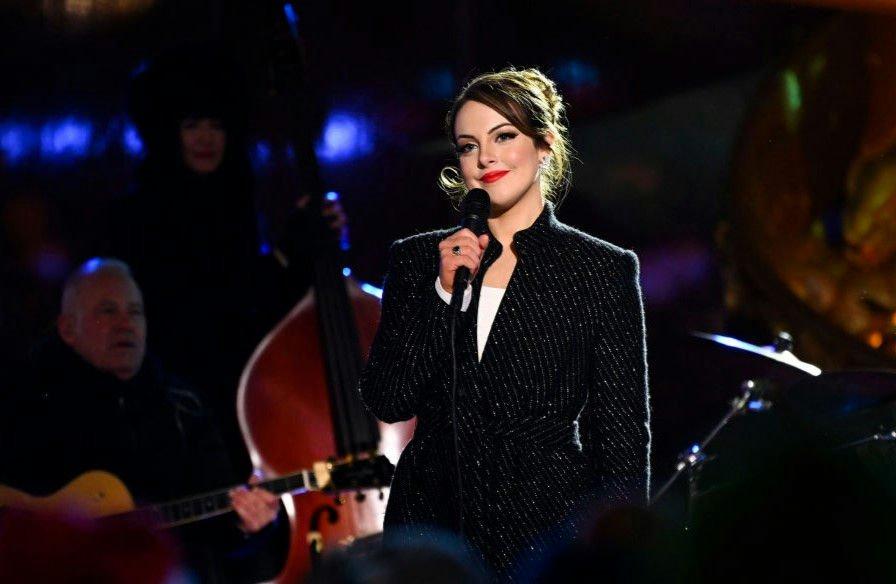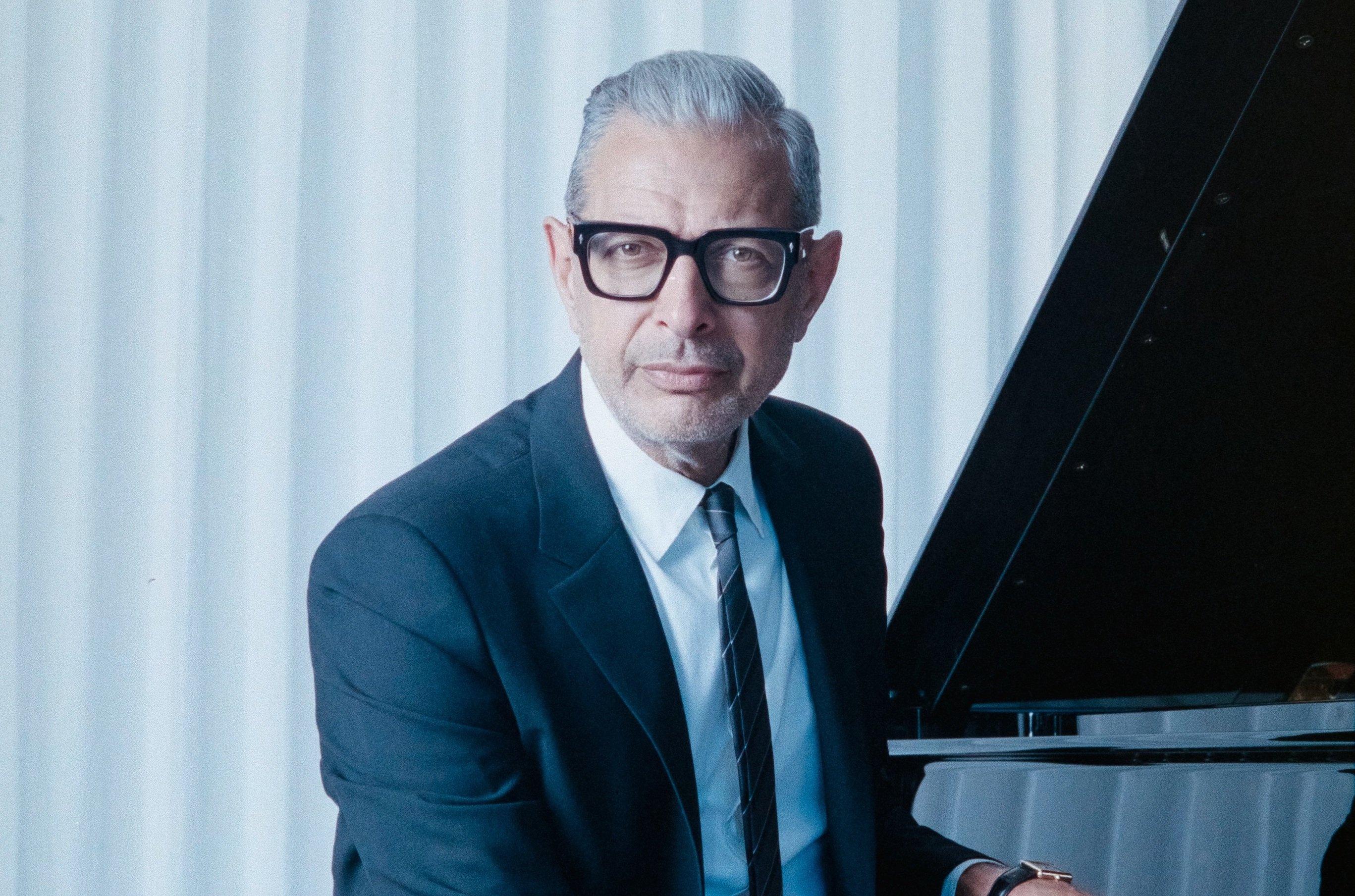Frank Sinatra has been a GRAMMY favorite from the very beginning. He had two of the five nominations for Album Of The Year for 1958, the GRAMMYs' inaugural year. He later became the first artist to receive two Album Of The Year awards — and also the first to receive three. He is, to date, the only artist to receive three Special Merit Awards from The Recording Academy — a Lifetime Achievement Award, Trustees Award and GRAMMY Legend Award.
The GRAMMYs are going all out to celebrate the 100th anniversary of Sinatra's birth. "Sinatra 100 — An All-Star GRAMMY Concert" will commemorate the Chairman of the Board with performances by Tony Bennett, Lady Gaga, John Legend, Alicia Keys, and Usher, among others. The two-hour special will be broadcast on CBS on Sunday, Dec. 6 from 9–11 p.m. ET/PT.
The multimedia exhibit Sinatra: An American Icon opened at the GRAMMY Museum at L.A. Live on Oct. 21. It will run through Feb. 15, 2016, the date of the 58th Annual GRAMMY Awards.
Here's a chronological look at Sinatra's GRAMMY history, including his nine GRAMMY Awards, recordings that have been inducted into the GRAMMY Hall Of Fame and his three Special Merit Awards.
(Whenever he performed in concert, Sinatra was gracious in crediting songwriters and arrangers. I'll follow his lead here.)
1940
"I'll Never Smile Again," Tommy Dorsey And His Orchestra with Frank Sinatra And The Pied Pipers
GRAMMY Hall Of Fame, Inducted 1982
This dreamy ballad was Sinatra's first major hit. It topped the Billboard chart for 12 weeks, becoming the biggest hit Dorsey ever had. Ruth Lowe wrote the song as a tribute to her recently deceased husband. Dorsey arranged and conducted the smash. This was the first Sinatra recording to be inducted into the GRAMMY Hall Of Fame.
1946
"The House I Live In"
GRAMMY Hall Of Fame, Inducted 1998
Sinatra sang this stirring song in a 10-minute short film of the same name, for which he received a special award at the Academy Awards in March 1946. The key lyric: "All races and religions/That's America to me." The song's positive message about diversity was progressive at the time — and is still relevant today. Earl Robinson composed the song, Lewis Allan wrote the lyrics. Axel Stordahl was musical director.
1953
"I've Got The World On A String"
GRAMMY Hall Of Fame, Inducted 2004
This bright, brassy recording was Sinatra's first collaboration with Nelson Riddle, a trombonist and arranger who had also worked with Dorsey. It became Sinatra's second hit for Capitol Records. (The first was the less-well-remembered "I'm Walking Behind You," which was arranged by Stordahl.) You can make a good case that this is the song on which Sinatra established his swinging style. Harold Arlen and Ted Koehler wrote the song in 1932 for a revue at the famed Cotton Club in Harlem, N.Y. Cab Calloway and Bing Crosby had hits with it soon afterward.
1955
In The Wee Small Hours
GRAMMY Hall Of Fame, Inducted 1984
Riddle also arranged and conducted this classic collection of torch songs. This was the first Sinatra album to be voted in the Hall Of Fame. (It was inducted the same year Riddle received a GRAMMY for his work on the title track of Linda Ronstadt's smash album What's New, which was a virtual love letter to the work Sinatra and Riddle had done together.)
1956
Songs For Swingin' Lovers!
GRAMMY Hall Of Fame, Inducted 2000
This swinging album was Sinatra's follow-up to …Wee Small Hours. Riddle again arranged and conducted. Highlights include "I've Got You Under My Skin" (see next entry) and "You Make Me Feel So Young." The album title played off the title of Sinatra's 1954 album, Songs For Young Lovers.
"I've Got You Under My Skin"
GRAMMY Hall Of Fame, Inducted 1998
This was a 20-year-old song by the time Sinatra recorded it. Cole Porter wrote the song for the 1936 film, Born To Dance. It was performed in the film by Virginia Bruce, who sang it to her co-star, James Stewart. The song brought Porter his first Oscar nomination. It was a hit that year, and again in 1951 for satirist Stan Freberg. The song had a history, but it's fair to say that Sinatra's dynamic version is what has made it an all-time classic. Riddle wrote the exciting arrangement after Sinatra gave him this direction: "I want a long crescendo." He got his wish via Milt Bernhart's eight-bar trombone solo. Sinatra's version was never released as a single. It is, nonetheless, one of his most famous works — and one of his very best.
1958
Come Fly With Me
GRAMMY Hall Of Fame, Inducted 2004
This collection of songs about travel destinations was Sinatra's first collaboration with arranger Billy May, whose orchestra played on the album. Highlights include "Autumn In New York," "April In Paris" and "Brazil." (This was the first of three Sinatra albums with similar titles. It was followed by Come Dance With Me! and Come Swing With Me!)
Frank Sinatra Sings For Only The Lonely
Best Album Cover: 1st GRAMMY Awards
GRAMMY Hall Of Fame, Inducted 1999
Oddly, Sinatra won his first GRAMMY not for his singing but for his art direction. The album cover depicts Sinatra made up as a sad clown. This concept album consists of classic torch songs, including "One For My Baby" (see next entry), "What's New" and "Guess I'll Hang My Tears Out To Dry." (In their liner notes, songwriters Sammy Cahn and James Van Heusen reveal the album was nearly titled For Losers Only.) Riddle arranged and conducted the album.
"One For My Baby"
GRAMMY Hall Of Fame, Inducted 2005
Arlen and Johnny Mercer co-wrote this ballad, which is considered the definitive "saloon song." Fred Astaire introduced it in the 1943 film The Sky's The Limit. Sinatra first recorded it at Columbia Records in 1947. He also sang it in the 1954 film Young At Heart.
1959
Come Dance With Me!
Album Of The Year; Best Vocal Performance, Male: 2nd GRAMMY Awards
May and his orchestra again backed Sinatra on this swinging collection. Highlights include "Cheek To Cheek" and "I Could Have Danced All Night." Come Fly With Me, Frank Sinatra Sings For Only The Lonely and Come Dance With Me! were consecutive studio albums. The Chairman was on a roll.
1965
September Of My Years
Album Of The Year: 8th GRAMMY Awards
GRAMMY Hall Of Fame, Inducted 1999
Sinatra turned 50 in 1965. Many artists in the pop music game would have tried to downplay the milestone, but Sinatra addressed it head-on, recording an album in which a man looks back and takes stock. Highlights include "It Was A Very Good Year" (see next entry) and "This Is All I Ask." The album, which was arranged and conducted by Gordon Jenkins, made Sinatra the first two-time Album Of The Year winner.
"It Was A Very Good Year"
Best Vocal Performance, Male: 8th GRAMMY Awards
This song, written by Ervin Drake, was first recorded as a folk ballad by the Kingston Trio in 1961. Jenkins' dramatic arrangement on Sinatra's recording won a GRAMMY for Best Arrangement Accompanying A Vocalist Or Instrumentalist.
Lifetime Achievement Award
Sinatra was just the second recipient of this award, following his hero, Bing Crosby (who was honored two years earlier). The Academy saluted Sinatra "for his continuing dedication to the highest of musical standards, both as a performer and as a recording executive, and for his unswerving faith in and devotion to the beauty in music."
1966
A Man And His Music
Album Of The Year: 9th GRAMMY Awards
This two-disc retrospective of Sinatra's career, which he narrated, made Sinatra the first three-time Album Of The Year winner. In all the years since then, only two other artists, Stevie Wonder and Paul Simon, have equaled that feat. The album consists of key tracks Sinatra recorded for Reprise Records and re-recordings of earlier tracks made for RCA Victor, Columbia and Capitol. A blurb on the front cover called the album "an anthology of the musical career of the most exciting entertainer of our time." High praise, but who would argue?
"Strangers In The Night"
Record Of The Year; Best Vocal Performance, Male: 9th GRAMMY Awards
GRAMMY Hall Of Fame, Inducted 2008
This sumptuous ballad became Sinatra's first No. 1 hit in 11 years and brought him his only GRAMMY for Record Of The Year. Bert Kaempfert composed the song as part of his instrumental score for the 1966 film A Man Could Get Killed. Charles Singleton and Eddie Snyder added the lyrics. Ernie Freeman's arrangement on Sinatra's recording won a GRAMMY for Best Arrangement Accompanying A Vocalist Or Instrumentalist.
1969
"My Way"
GRAMMY Hall Of Fame, Inducted 2000
While visiting France, Paul Anka heard a French ballad, "Mon Habitude," written by Jacques Revaux, Gilles Thibault and Claude Francois. Anka re-wrote the lyrics, tailoring them for Sinatra's persona. Sinatra was just 53 when he recorded the song, rendering the opening line ("And now the end is near/And so I face the final curtain") premature (and a tad maudlin). Nonetheless, the power ballad became a signature song for Sinatra. Don Costa arranged and conducted the recording.
1979
Trustees Award
With this award, Sinatra became the second person to receive both a Lifetime Achievement Award and a Trustees Award (which primarily recognizes nonperformance contributions to music). The first was Duke Ellington.
1980
"Theme From New York, New York"
GRAMMY Hall Of Fame, Inducted 2013
Liza Minnelli introduced this Fred Ebb/John Kander song in the 1977 film of the same name. Sinatra was 63 when he recorded the song in September 1979; his age gives the song added depth and poignancy. Sinatra was exactly who he was portraying in the song: An older guy hungry for one last shot at the brass ring. He got it: The song became Sinatra's final Top 40 hit, 40 years after his first. It also became his signature song for the rest of his performing career. Costa arranged Sinatra's version, which was featured on the triple-disc album Trilogy: Past, Present, Future.
1994
GRAMMY Legend Award
Bono, who was Sinatra's duet partner on "I've Got You Under My Skin" on his 1993 album Duets, presented this award on the 36th GRAMMY Awards telecast on March 1, 1994. The U2 frontman gave an insightful speech in which he analyzed Sinatra's appeal. He called Sinatra "this singer who makes other men poets." He added, Sinatra's music "is where he lives, where he lets go, where he reveals himself. His songs are his home and he lets you in."
1995
Duets II
Best Traditional Pop Vocal Performance: 38th GRAMMY Awards
Fittingly, Sinatra won a GRAMMY for the final studio album of his unmatched career. This sequel to Duets featured such duet partners as Ronstadt, Antonio Carlos Jobim and Lena Horne. Phil Ramone produced the album.
(Paul Grein writes about pop music for Yahoo Music and Hits.com.)



-3.jpg)
